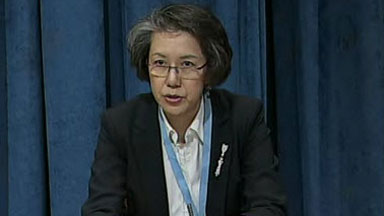The United Nations (UN) special rapporteur on human rights in Burma, Yanghee Lee, has issued a report that paints a bleak picture of the rights situation in the country, following a ten-day trip earlier this year, noting severe and sometimes worsening restrictions on democracy.
In the report released on 9 March, Lee warns that the continued inequality of economic development means that the Burmese government “risks leaving large parts of the population with legitimate grievances against the state”, due to shortages of education, health and livelihoods opportunities. The report says, “In a country with a long history of violent conflict, such grievances risk further disassociation from the state and extension or renewal of instability and conflict.”
[related]
The recent violence between the Burmese army and ethnic militias in the Kokang Special Region – which has erupted since Lee’s visit to the country from 7-16 January – is described as “alarming”, and the report cautions that the state of emergency established in the region on 17 February “must be accompanied by strict accountability and safeguards for human rights.” After the targeting of humanitarian and civilian convoys in the area, the report echoes other international calls to uphold humanitarian access.
The special rapporteur’s visit ended amid a storm of controversy when hardline monk Wirathu made a speech in which he harangued Lee for her support for the Rohingya people in Arakan State, and called her a “whore”. The report acknowledges the “sexist, personal attack” as being symptomatic of a “growing atmosphere of fear distrust and hostility”. The UN have been criticised by nationalists for what is perceived as meddling in Burmese affairs for insisting that the Rohingya should be granted citizenship in the country.
Concerns are raised over discrimination against women and minorities in the form of the so-called Race Protection laws, as well as abuses of land rights. A number of recommendations are made regarding freedom of expression, association and public assembly, including the prevention and thorough investigation of incidents of excessive force in managing public protests.



